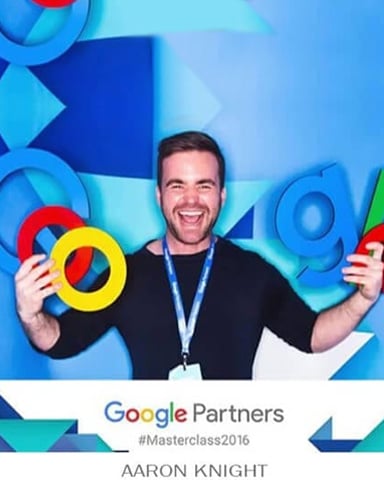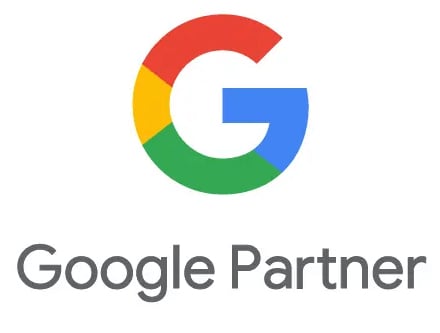Google Ads (Adwords) Management Helps You Make Connection with the Audience!
As Google is the most popular search engine in the world – everybody just says ‘I’ll Google it’ when looking to find something online, right? – Google Ads is always a top pick when it comes to advertising a business online. If you want traffic to your website, you have to advertise where your audience is — and that calls for a successful Google ads campaign. Google Ads (Formerly AdWords) is the online advertising service owned by Google and used across Google’s online platforms. It is a product that you can use to promote your business, help sell products or services, raise awareness among your target audience, and increase traffic to your website. Having a Google Ads campaign set up in Sydney puts your business front and centre of those searches and improves your digital marketing strategy by a landslide.
With Google’s search engine as its backbone, Google ads appear across a wide variety of online searches. Alongside the ad that will appear at the top of a regular Google search, Google ads can also be found across regular websites, which Google arranges via a deal with the website owner. Providing them with some ad revenue in agreement for advertising on the site.
Due to this, Google ads campaigns have a really huge reach. Anybody who uses search ads to advertise can tap into this enormous network. Best of all, while the reach is huge, getting set up on Google Ads isn’t that hard. But there are a few things to understand before you do.
Though the concept of Google Ads is very simple, proper execution of your Google Ads campaign can be very hard to achieve. Advertising is a tough and highly-competitive business. Online advertising even more so. Success in this industry requires an in-depth understanding of a number of web principles like SEO, analytics, and even day to day consumer demand, and marketing trends.
eCommerce looks easy but it’s actually complex. Integrating a Google Ads campaign into it creates a whole new challenge. When done well it can absolutely boost your business’ online audience, and drive traffic to your website. When done poorly it can be a big waste of time and money. That’s a bad result for any business, but especially for an entrepreneur or small business needs to ensure they get good value for money when it comes to Google ad campaigns and lots of Google shopping fans coming their way.
If you feel ready to capitalize on a never-ending number of searches that take place on Google on a daily basis, here are a few more reasons why you might want to engage in Google ads campaigns.
If you are asking yourself “Why to use Google Ads?” right now, you should be asking “Why not?”. Google advertising has something to offer for businesses of all sizes with different budgets and different advertising goals. Together, we can make sure that you promote your products and services successfully and take your business to the next level. In a sea of seemingly endless searches (around 2+ trillion per year, to be more specific), why wouldn’t you drop a bucket in to see how much revenue we can bring up?
As a veteran web designer and marketer, I know Google ads in and out. Each day, I put to use my many years of experience as a digital professional in all things AdWords. Hire me and I can:
I know Google ads from top to bottom, start to finish. I’ve attended Google Masterclasses before, I’m Google AdWords certified, and am at work using AdWords each and every day to ensure my client’s ads end up in front of people’s eyes. Hire me to manage your Google advertising campaign and I’ll get you out in front of your competitors, and keep you there. High visibility, high impact, and great value for money. These three goals are at the centre of every Google ads campaign I create.
So, if you need assistance with your Google Ads Account, get in touch with me today!

You’re looking at him. I’ve run digital agencies before, and the biggest issue they seem to face is losing clients due to a lack of transparency, confusion or neglect. That’s why I’ve chosen to build my brand using my own name. You’ll deal with the same person from start to finish and I’ll manage your Google Ads campaign every step of the way. I keep my client base small to offer a more personalised service.

I am happy to use your existing ad or help you create one with my super talented team.
AdWords is a really flexible platform but there are some basic rules surrounding the quality and size of an image. If your existing image fits these specifications, great! If not, we can always help you edit it to ensure it meets AdWords’ requirements, or help you create a new one.
Each AdWords campaign is a lot like placing billboards along the side of a road. The more billboards you place, and the more traffic the road gets, the more the billboards will cost.
The same principle applies to AdWords. This said, I always look to ensure all my AdWords campaigns make a real impact – and always deliver great value for money to every client.
You sure can! If you have an existing website and you’d like to advertise on it there’s a number of ways you can integrate AdWords into it. I am always happy to have a chat with anyone who is looking to get this structure set up, and it’s something I’ve done for many clients before.
It’s understandable if you’re new to ads that you’re perhaps a bit sceptical of their power. After all, there’s a lot of ads out there, and wondering how well yours will stand out is an important consideration.
It’s true that the popularity of individual ads can vary. This means a bad ad is unlikely to get many clicks. But certainly, good ads are clicked on and engaged with every day – so it’s really about creating a quality ad and having the right strategy in place.
Do that and you can be sure your advertising campaign will go well.
This is a common question and a really important one to understand.
PPC = Pay Per Click.
Traditionally, it’s the way advertisers have been paying for search ad campaigns. Advertisers would hop into an auction, and then if an online user clicks their ad following it, the advertiser would then pay for that click.
SEM = Search Engine Marketing
This is the very visible form of marketing on show now across any website with advertisements.
It’s all marketing that maintains a connection with search engines like Google, Bing, and so on.
From text ads to Google Shopping Ads to ads on YouTube and in Google Maps and more.
It’s important to keep in mind there are other ways that ads can be paid for. Such as via Cost Per View (CPV), Cost Per Conversion (CPC), and Cost Per Impressions (CPI).
It comes down to the bidding strategy. Put simply, you determine Google ad costs when you set up the ad. Google also allows for a cap of 20% more beyond that total cost for the bid. This is important to be mindful of when planning your ads, always plan for the cost of the ad plus 20% more.
There are also other bidding strategies like “Enhanced CPC” and “Maximise Conversions”. Google can up the cost of their bid using these. Accordingly, the total a client could spend in a single day could be two times their normal maximum daily spend.
Really, it all boils down to two key questions: What are your goals? And what is your budget?
Once we have a chat about this, a strategy can be set up that delivers you a strong ROI.
Where will my listings show up on search engine pages?
Where your listings display in SERPS (the lingo we use for Search Engine Result Pages) depends on a few factors:
1. The amount of competition for each search term you bidding on
For example, if you have a very popular keyword like ‘Cafe’ or ‘Restaurant’ it’s going to be harder than a word like pneumonoultramicroscopicsilicovolcanoconiosis. This IS a real word, but it’s also – alongside being very hard to pronounce – not used often, reducing competition for it online.
2. The area of placement you desire
The nature of auctions means it’s hard to get exactly what you want all the time. But you can certainly aim for the bullseye and get very close to it with the right strategy. The higher the placement you want, the more important it is to have a strategy that is precise and calibrated for success.
3. Whether your ads are relevant
Google’s algorithm makes determinations regarding the relevancy of ads. This can complicate your goals if you don’t have a simple and clear-cut ad. For example, if you are a coffee shop selling coffee, it’s unlikely Google will struggle to recognise the relevance of your ads.
If your ad has a more complex connection – for example, if you’re a boat shop that sells surfboards, but only sells them in the summer – then this is a more complex proposition, and Google may have a harder time recognising the relevance of your ads.
Fortunately, like the other challenges listed here, with the right strategy and advice you can guarantee any ad you create will be relevant.
Getting an exact number to this question is a bit like asking ‘how long is a piece of string?’
What is certain is that there are countless websites out there that offer PPC. As a result it’s guaranteed if you’re keen on a PPC campaign you’ll find a very big audience for it online.
These are very different concepts, but the difference is easy to understand:
Cost Per Click is when you pay once someone has actually clicked on your ad.
Cost Per Impression is when you pay for anytime your ad has been displayed.
Clicks are often preferable, but impressions can be just as good for certain campaigns. It all comes back to your goals and what you want the ad campaign to achieve.
The success of your PPC campaign can be tracked in a number of ways. It really depends on your experience and comfort level with PPC campaigns. For most of my clients, they find it saves time (and money!) to have me and my team manage your ad campaign once it begins.
That way you get the best of both worlds. An ad campaign you are 100% happy with that really shows your business is its best light, and the ability to get on with tasks elsewhere as my team and I take care of managing the day by day running of the campaign for you.
Google Ads and Google Maps are separate online applications and overall they function like it accordingly. This said, there is always an increasing integration between the two. For example, you can use location extensions in Google Ads that sync up with Google Maps (and also Google My Business). This means if someone makes a relevant search in Maps within your local area, your business listing will show up as a listing.
Google Display Network is a collection of millions of sites around the web that show Google ads. If you use the Google Display Network for a campaign you can customise your audience, deciding which demographics you want to target with your ad. The Network has sites organised by different topics and industries, so it’s totally possible to create a very effective campaign even when dealing with all these different sites!
Understanding how Google’s Remarketing works first requires a definition of remarketing. Put simply, remarketing is the presentation of your ads to online users who have already had an interaction with your brand before. By using cookies on your website (as well as other marketing options) you can keep in touch with the user’s other online activity, and then remarket ads to them when they are once again using Google products like Search, Shopping, and YouTube.
It’s an unfortunate reality of the online world that some businesses and bots (a program created by someone to do something automatically such as clicking ads) behave badly. In the case of online ads, this means your costs can be driven up if a competitor or a bot decides to take an interest in clicking on your ads time and time again. This is what we in the industry call click fraud.
When it comes to regulating behaviour online the best offence is a strong defence. My team and I are very proactive about this. While such behaviour is very rare if any activity from an online user is suspicious we’ll note it, contact you, and get your permission to block that user (via their IP address) from clicking on your ads anymore. You can also authorise us to take this action at the start so we can save time and ensure nobody is driving up your click costs artificially.












© 2024 by Aaron Knight. All rights reserved.
